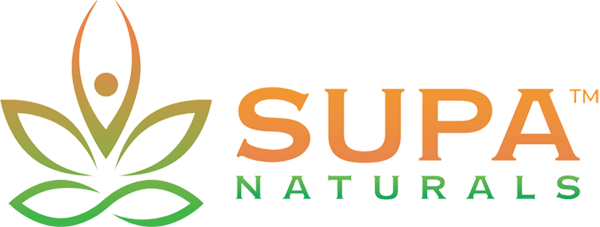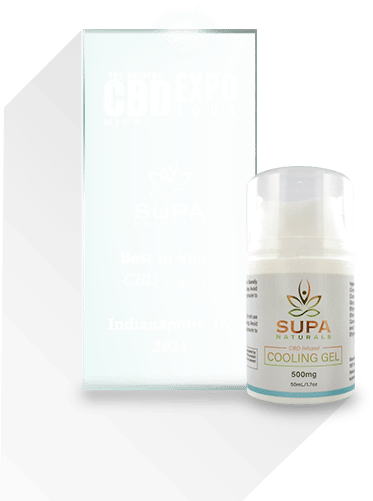Does CBD Show Up on a Drug Test?
CBD offers a world of health benefits, ranging from anxiety relief to pain management. However, if you’re considering taking CBD, you may be wondering: does CBD show up on a drug test?
Typically, high-quality CBD does not show up on drug tests. However, some forms of CBD contain small amounts of THC, the psychoactive component in marijuana.
Taking too much CBD containing this compound may lead CBD users to fail a drug test.
Choosing a high-quality CBD product with undetectable THC content can help you avoid this problem. Read on to learn more about CBD and drug tests.
Does CBD Show In Blood Test?
CBD typically will not show up on a blood test unless it contains higher-than-legal THC content. In this case, the THC would show up on the blood test.
Blood tests are some of the least common drug tests. Typically, when you need to undergo a drug test for a job, you would provide a urine, hair, or saliva sample rather than a blood sample. As a result, if someone is trying to detect THC in your bloodstream, they would likely need to request a blood test specifically for that purpose.
Does CBD Show In Urine Drug Tests?
CBD can be detectable in your urine for up to five days after use.
However, CBD usually does not appear on drug tests unless it contains high concentrations of THC. If you have taken an unreliable CBD product that contains more than 0.3% THC, the THC may produce a positive drug test.
When you ingest a product that contains THC, your body breaks down the THC into metabolites. Eventually, your body eliminates the THC metabolites through your feces and urine. As such, THC may appear in a urine test or immunoassay test if you have recently consumed high levels of THC.
Urine tests use antibodies that adhere to drugs and metabolites in the urine sample. When antibodies identify THC metabolites, your test could come back positive.
Urine drug tests can come back positive when they detect at least 50 ng / mL of THC in a urine sample, which is the federal cutoff level. In order to hit this concentration after taking CBD, you would have to consume at least 2,000 mg of CBD that contains less than 0.3% THC. This amount of CBD is much higher than most users consume.
If you’d like to avoid the possibility of CBD showing up on a urine drug test, be sure to choose a product that has been certified as THC-free. As an added precaution, you may want to avoid using CBD within five days of your scheduled urine drug test.
Different CBD Extracts

Not every type of CBD extract contains THC. Here are the three primary types of CBD extracts:
Full-Spectrum CBD
Full-spectrum CBD is a form of CBD that includes more than pure CBD isolate. Instead, full-spectrum CBD contains a wide range of other cannabinoids and naturally occurring compounds found within cannabis plants, such as cannabidiol, terpenes, essential oils, and a small amount of THC.
However, the THC content in full-spectrum CBD products typically will not produce a “high” sensation. Full-spectrum CBD must contain at or below 0.3% THC to be legal at the federal level. This small amount of THC is not detectable on drug tests.
People take full-spectrum CBD products because they often produce more comprehensive benefits. The additional ingredients in full-spectrum CBD work together to deliver more noticeable results for some users compared to pure CBD.
Broad-Spectrum CBD
Broad-spectrum CBD is a CBD product that contains all of the plant compounds and extracts in full-spectrum CBD without the THC. While some broad-spectrum CBD products contain trace amounts of THC, most do not.
A reliable broad-spectrum CBD product should clearly state its THC content on its label. If you find that a product does not indicate its THC content, you may not be able to trust that it is THC-free.
If you’re looking for a broad-spectrum CBD product that does not contain any THC, be sure to choose one that has been certified as THC-free through third-party lab testing.
CBD Isolate
CBD isolate is pure CBD. This CBD product contains no other plant compounds or extracts. As a result, it shouldn’t contain THC either.
If you’re unsure which type is right for you, feel free to perform your own research to determine the CBD product best for your needs.
Why Would CBD Create a Positive Drug Test Result?

The primary reason CBD use could lead to a positive drug test is that it contains more THC than it should.
CBD manufacturers must comply with an FDA regulation when producing their CBD products. Specifically, manufacturers can only source their CBD from hemp containing THC levels of 0.3% or below. This small amount of THC does not appear on drug tests or produce any psychoactive effects.
However, manufacturers failing to comply with these regulations could create CBD products with higher THC concentrations that produce a positive drug test.
Some manufacturers in the CBD industry fail to disclose just how much THC is in their products. Others use cheaper extraction methods that leave trace amounts of THC in their CBD oils.
A 2017 study tested 84 CBD products from online manufacturers. Researchers detected THC in 18 of the 84 CBD products tested, demonstrating the inaccuracy of many CBD oil labels.
Meanwhile, a German study found that 25% of samples contained THC above the lowest level producing adverse effects.
If you ingested a CBD product with a high concentration of THC, the THC can remain in your system for some time. Here’s how long THC is detectable in different bodily systems:
- Urine: 1-30 days
- Blood: 2 to 12 hours
- Hair: Up to 90 days
- Saliva: Up to 24 hours
As a result, depending on the type of drug test you are participating in, the high levels of THC you ingested in a CBD product could produce a positive reading within days or weeks after ingesting it.
When you purchase CBD oil or other CBD products from unreliable manufacturers, you run the risk of ingesting high concentrations of THC and a range of other cannabinoids and ingredients unknowingly. Typically, a reliable CBD manufacturer meets the following criteria:
- Sources its CBD from hemp instead of marijuana plants
- Uses supercritical carbon dioxide extraction to extract the CBD from the hemp plant
- Undergoes third-party testing to ensure that its products contain the intended ingredients and concentrations
- Clearly states the CBD concentration and THC content on each product label
Best Type Of CBD That Doesn’t Show Up In Drug Tests

If you’re looking to avoid the slightest possibility of CBD showing up on a drug test, you’ll want to choose a high-quality, reliable CBD product. Purchasing CBD products from SUPA Naturals or other dependable manufacturers can help you feel confident in the purity and reliability of your products.
Alternatively, you can consider purchasing CBD isolate or broad-spectrum CBD rather than full-spectrum CBD products. In most cases, these two types of CBD products do not contain THC, or contain trace amounts that shouldn’t show up on a drug test.
However, you should be sure to check the product label to determine a product’s THC content. If a CBD isolate or broad-spectrum product does not clearly state that it is THC-free, it may contain trace amounts of this cannabinoid, which could lead to a positive drug test.
While different types of drug tests check for different substances in your body, THC is typically the only substance within CBD products that could show up on a drug test. Choosing a CBD product without THC should keep your drug tests clear.
Is CBD Legal Federally?
CBD is legal at the federal level as long as its THC content is 0.3% or less.
The 2018 Farm Bill changed the FDA’s list of controlled substances to exclude hemp plants. As a result, hemp-derived CBD products that contain no more than 0.3% THC are legal at the federal level.
Meanwhile, marijuana-derived CBD is still illegal federally. However, many states have legalized marijuana both for recreational and medicinal uses, permitting consumers in those states to purchase marijuana-derived CBD.
How Long Does CBD Stay In Our Body?

CBD can remain in your system for anywhere from a few hours to 25 days. The exact time it takes to leave your system depends on the amount of CBD you take, the product’s half-life, and various other factors.
Half-life is the time your body takes to eliminate half of a substance, such as a drug. Generally, CBD leaves the system after four or five half-lives. However, CBD’s half-life can range from one hour to five days, depending on the product and potency.
What Can You Do If You Want To Be Sure?
If you want to be absolutely sure that you will not fail a drug test while taking CBD products, we recommend taking a few measures.
First, you should only purchase CBD products from reputable manufacturers that clearly state their THC content on their product labels. If a company seems like it is trying to hide its ingredients or dosages, stay away from it.
Second, you can consider only using CBD isolate, which shouldn’t contain any THC. However, keep in mind that even some CBD isolate products can contain trace amounts of THC. Be sure to only choose a product that is verified as THC-free.
If you still want to use full-spectrum CBD products, be sure to only purchase options that have verified that their THC content is less than 0.3%. Full-spectrum CBD with this low THC concentration is legal at the federal level and shouldn’t produce a positive drug test when taking a normal daily dose.
Finally, if you know you have a drug test coming up, it wouldn’t hurt to stop using CBD products until you pass your test. Failing a drug test can be stressful and embarrassing, and in some cases, may even cost you your job. It may be worthwhile to stop using any products that have even a small chance of causing you to fail a drug test.
What If I Tested Positive While Using CBD?
If you received a positive test result on a drug test after using CBD, several circumstances could have occurred.
First, the CBD oil you used may have contained higher levels of THC than stated on the label. If this is the case, we recommend getting rid of these CBD oil products and purchasing CBD from more reliable manufacturers, such as SUPA Naturals.
Alternatively, you may have received a false-positive result. For example, such as efavirenz (an NNRTI) can produce a positive reading for cannabinoids on urine drug tests If you believe you received a false positive, you can attempt to dispute the result with the drug screening company.
Finally, while this instance is rare, you may receive a positive test result if you were recently around someone who was smoking marijuana. A Journal of Analytical Toxicology study found that extreme secondhand cannabis exposure in a non-ventilated room can produce positive urine test results in the hours immediately after exposure.
How Much CBD Will Cause a Failed Drug Test?
Taking THC-free CBD oil will not cause you to fail a drug test. However, if you accidentally use a CBD product that contains more than the legal limit of THC — and you take enough of this product — it could appear on a drug test.
Typically, urine drug testing can detect THC in a sample if it is in concentrations of more than 50 ng / mL. If your CBD concentration contains more than 0.3% THC, you could easily reach this limit. However, you would have to take at least 2,000 mg of CBD that contains less than 0.3% THC to reach this concentration — 181 times the average daily dose prescribed in a clinical study for pain management.
However, some users take much higher doses of CBD each day. A clinical study found that people can tolerate CBD doses of 1,500 mg daily. If you decide to take a higher CBD dose, keep in mind how it could impact your drug test results.
Can You Travel After Taking CBD Oil?

You should have no problem passing airport security while using CBD oil or other CBD products.
Additionally, TSA should permit you to take CBD oil on the plane with you, as long as it only contains THC in legal amounts. Just be sure not to take any liquids in your carry-on that are more than three ounces.
You should also be able to order hemp-derived CBD oil products from manufacturers and ship them through the USPS. Under the 2018 Farm Bill, the USPS must allow the transport of CBD oil products derived from the hemp plant.
Workplace Drug Testing
If you use CBD products and your work has announced randomized drug testing, you may be concerned that your CBD use will appear on these tests.
Workplaces often mandate randomized urine drug and alcohol tests. These drug tests screen for illicit drug and alcohol use while on the job.
Urine tests can detect THC in the body for up to 30 days. This means that if you took a CBD product with a high concentration of THC for up to a month before your workplace drug test, you could receive a positive test result.
Alternatively, some companies use saliva tests to identify illicit drug use in their employees. THC is typically only detectable in the saliva for 24 hours after use.
Final Thoughts
While there’s always a possibility that a CBD product could contain a false label, most hemp-sourced CBD products will not cause you to fail a drug test. CBD is legal at the federal level and does not contain enough psychoactive compounds to produce a “high” effect. This product is not considered an illicit drug and will not appear on most drug test results.
CBD can produce a wide range of health benefits, and you shouldn’t have to sacrifice your CBD use in the name of drug testing. Purchasing a reliable, safe, high-quality product from SUPA Naturals can ensure that your CBD contains the right dosages and ingredients for your needs.






